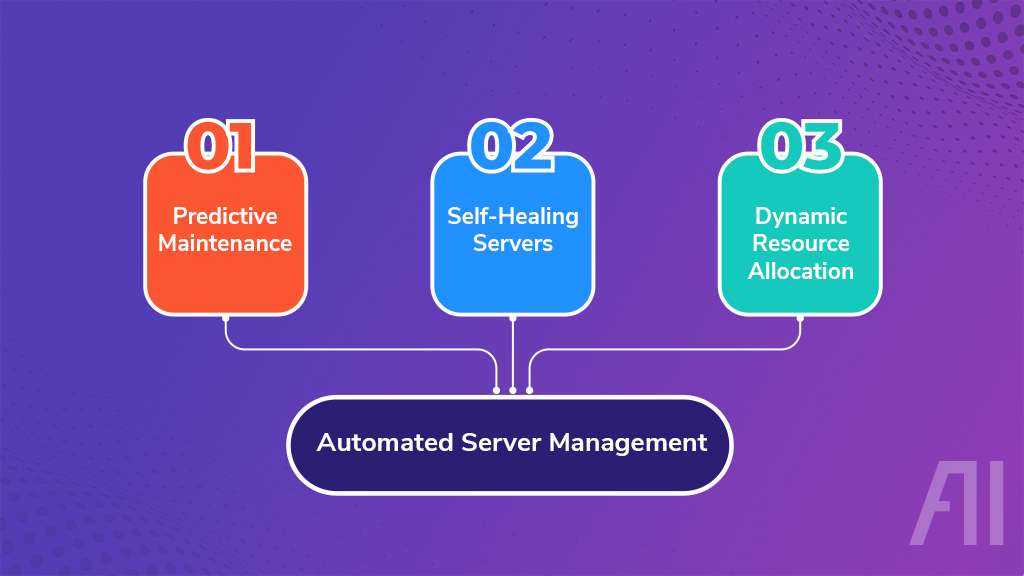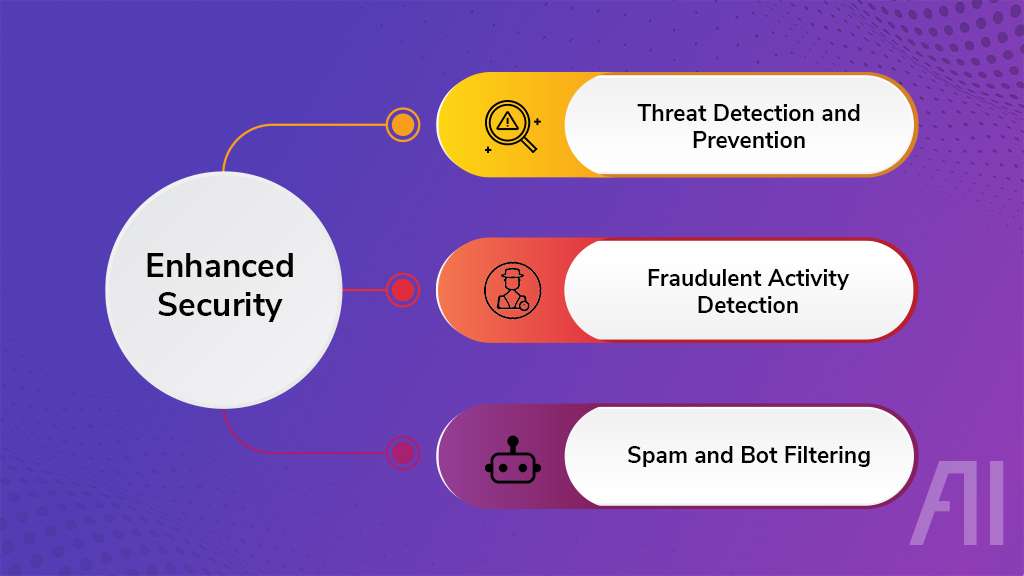Hey there, fellow explorers on the AI journey! Although 2024 has just kicked off, the future is already bursting with thrilling advancements in the realm of artificial intelligence. Brace yourself to witness top AI Trends not only as a futuristic buzzword but as a concrete force that will revolutionize every aspect of our lives. It will reshape the way we work, create, connect, and interact with the world around us.
In this blog, we’ll dive deep into the significant AI Trends shaping the AI landscape in 2024. We’ll uncover how AI is becoming more accessible, intelligent, and impactful. It will mold industries, empower workforces with new skills, and even challenge our perception of humanity. Get ready for an exhilarating ride into the future of AI!
What is AI?
AI is no longer just a concept from science fiction movies. It has become an integral part of our everyday lives, subtly but surely changing how we work and play. Whether it’s the algorithms suggesting what to watch on Netflix or the voice assistants like Google Assistant managing our smart homes, AI is present in every aspect of our existence.
But what does AI mean? It refers to machines having the capability to imitate human intelligence, learn, and adapt to perform tasks that usually require human thinking. These tasks can range from simple ones like recognizing faces in photos to more intricate ones like composing music or diagnosing diseases.
Reasons Why AI is Shaping Our Modern World
Artificial intelligence (AI) is rapidly becoming a part of our everyday lives, from personalized recommendations on our smartphones to self-driving cars. But what is driving this growth and potential of AI? Let’s explore 10 key reasons:
1. Rise of AI in Web Hosting
The website hosting industry is undergoing a major transformation with the rise of Artificial Intelligence (AI). AI is bringing intelligence and automation to various aspects of hosting, resulting in improved efficiency, performance, and overall experience for Web hosting providers and website owners.
Here are some key areas where AI is making a difference in website hosting:
i. Automated Server Management

- Predictive Maintenance
AI algorithms analyze server data to predict potential issues before they happen, allowing for proactive maintenance and preventing downtime.
- Self-Healing Servers
AI-powered systems can indeed detect and resolve minor issues automatically, reducing the need for human intervention and ensuring faster recovery times.
- Dynamic Resource Allocation
AI can allocate resources based on real-time traffic patterns, optimizing resource utilization and preventing server overload during peak periods.
ii. Enhanced Security

- Threat Detection and Prevention
AI analyzes website traffic and server logs to identify malicious activity, such as malware and unauthorized access attempts, enabling proactive security measures.
- Fraudulent Activity Detection
AI analyzes user behavior and transactions to identify suspicious patterns that may indicate fraudulent activity, protecting both hosting providers and website owners from financial losses.
- Spam and Bot Filtering
AI-powered systems effectively filter out spam comments, fake reviews, and bot traffic, ensuring websites maintain a clean and legitimate online presence.

2. Abundance of Data
We live in a world where we generate vast amounts of data every day. This data is indeed essential for AI algorithms to learn and improve. The more data we have, the smarter AI becomes.
3. Increased Computing Power
Computing power continues to grow exponentially, allowing us to train complex AI models and run them efficiently. This power fuels the growth of AI applications.
4. Advancements in Algorithms
New algorithms are constantly being developed, expanding the capabilities of AI. These advancements enable AI to handle complex tasks like image and speech recognition, natural language processing, and even creative endeavors like music composition and writing.
5. Accessibility of AI Tools
AI tools and platforms are becoming more user-friendly, making AI accessible to businesses of all sizes and individuals. This democratization surely allows for the use of AI in tasks like marketing, customer service, and personal productivity.
6. The Merging of Technologies
AI is not alone in its advancements. It is merging with other advanced technologies such as robotics, the Internet of Things (IoT), and big data analytics. This combination creates powerful collaborations, resulting in the creation of intelligent systems that can interact with the physical world and make decisions in real-time.
7. Global Investments and Competitiveness
Governments and private companies worldwide are investing billions in AI research and development. This fierce competition drives innovation and speeds up the progress of AI. Moreover, the race for AI dominance has significant geopolitical implications, shaping the future of various industries and sectors.
8. Automation and Streamlining
AI is revolutionizing automation in different industries, including manufacturing, logistics, finance, and healthcare. This automation enhances efficiency, reduces costs, and boosts productivity. While concerns about job displacement may arise, it also opens up opportunities for new types of work that require collaboration, creativity, and critical thinking skills.
9. Personalization and Tailoring
AI algorithms can analyze vast amounts of data to understand individual preferences and needs. This enables personalized experiences in areas such as product recommendations, advertising, education, and healthcare. AI can surely customize services and treatments according to individual requirements, leading to better outcomes and a more satisfying user experience.
10. Unleashing Human Potential
AI can enhance human capabilities and expertise, allowing us to focus on higher-level tasks like creativity, problem-solving, and strategic thinking. By taking over repetitive and mundane tasks, AI enables us to be more productive and concentrate on what truly matters.
11. Shaping the Future
AI is more than just changing the present; it is molding the future in significant ways. By addressing worldwide issues such as climate change and healthcare crises, as well as venturing into uncharted territories of space and pushing the limits of scientific exploration, AI holds the power to resolve some of the most urgent problems faced by humanity. In doing so, it paves the path toward a more promising tomorrow.
12. Supercharged SEO
Say goodbye to chasing generic keywords and crossing your fingers. AI-powered SEO tools are revolutionizing the game by analyzing search intent, dissecting competitor strategies, and accurately predicting search trends with the help of Google Trends. This enables laser-focused keyword research, content optimization that truly connects with audiences, and proactive campaign adjustments based on real-time data insights.
13. Reinventing Content Creation
AI isn’t just crunching numbers; it’s redefining the art of storytelling. From crafting captivating blog posts and ad copy to generating product descriptions and social media captions, AI tools are transforming content creation. This empowers marketers to concentrate on strategy and creative direction, while AI lends a helping hand. Remember, AI is a valuable tool, but it can never replace human ingenuity and storytelling prowess.
14. Hyperlocal Personalization
Gone are the days of one-size-fits-all marketing. Thanks to AI, personalized experiences are now possible on a massive scale. AI tailors messaging, offers, and recommendations to individual user preferences and behaviors. Imagine showing a potential customer in New York City a different ad for your winter jacket than the one you’d show someone in Miami. That’s the incredible power of AI-driven personalization.
15. Unlocking the Future
No more shooting arrows in the dark. AI algorithms are unlocking the ability to predict audience behavior, campaign performance, and even market trends. By analyzing vast datasets, marketers can optimize campaigns in real time, allocate resources effectively, and stay ahead of the curve in the ever-evolving digital landscape. Embrace the power of prediction and stay one step ahead.
16. The Voice Search Revolution
As smart speakers and voice assistants become increasingly prevalent, AI is reshaping the way we search for information. SEO strategies must now adapt to voice search queries, focusing on natural language optimization and conversational keywords. Likewise optimizing for voice search means understanding how people speak, not just how they type. Embrace the rise of voice search and stay ahead of the game.
17. The Power of Automation
In the fast-paced marketing world, time is of the essence. With the rise of AI, repetitive tasks such as data analysis, ad bidding, and social media management are being automated, allowing marketers to focus on the bigger picture. This automation not only boosts efficiency but also minimizes human error, enabling quicker campaign adjustments.
18. Upholding Ethical Standards
As AI becomes increasingly integrated into SEO and marketing, it is crucial to prioritize ethical considerations. Addressing issues like bias, transparency, and data privacy is essential to ensure responsible and fair use of AI. Establishing trust with consumers through transparency and accountability will be vital in the era of AI-powered marketing.
19. Embracing the Human-AI Partnership
AI should not be seen as a replacement for human creativity and strategic thinking. Instead, it should be viewed as a powerful tool that enhances human capabilities and drives superior marketing outcomes. The future of SEO and marketing lies in a collaborative partnership between humans and AI, where each leverages their strengths to achieve exceptional results.
20. AI and the Enhanced Workforce
Robots and AI-driven tools collaborate with humans across various industries, including manufacturing, healthcare, logistics, and customer service.
This “enhanced workforce” enhances productivity, improves accuracy, and allows human workers to focus on more strategic tasks. For instance, AI-powered cobots assist assembly lines, virtual assistants handle customer inquiries, and AI-driven algorithms optimize logistics routes.
21. Effective Language Modeling
The advancements in large language models like ChatGPT and LaMDA have enabled them to comprehend and generate text that closely resembles human language with exceptional precision.
These models can translate languages, create diverse types of creative content, and provide informative answers to your questions. Therefore they find applications in chatbots that offer personalized customer service, automated content creation tools, and language translation services.
22. AI in Cybersecurity
AI algorithms are analyzing vast volumes of data to identify and prevent cyberattacks, detect malware, and safeguard sensitive information.
This proactive approach helps mitigate security risks and ensures the integrity of data. For example, AI-powered threat detection systems, anomaly detection algorithms for spotting suspicious activity, and self-healing systems that automatically fix vulnerabilities.
23. The Metaverse & AI
Artificial Intelligence plays a pivotal role in shaping the Metaverse by creating immersive virtual environments, personalized experiences, and interactive virtual assistants. AI algorithms drive natural language processing for virtual interactions, generate realistic avatars and environments, and tailor user experiences.
For instance, AI-powered avatars that learn and adapt to user preferences, virtual worlds that dynamically respond to user actions, and AI-driven storytelling and content creation within the Metaverse.
24. Making AI Accessible to All
AI platforms that are user-friendly and require minimal coding are democratizing AI, allowing even those without technical expertise to harness its power. This enables businesses and individuals to utilize AI for tasks such as data analysis, automated marketing, and personalized content creation.
Examples include AI-powered website builders, marketing tools with AI-driven insights, and chatbots that require no coding for customer service.
25. The Future of AI in Transportation
AI-driven autonomous vehicles are rapidly advancing, promising safer and more efficient transportation options.
Advancements in sensor technology, navigation algorithms, and obstacle detection are pushing the boundaries of self-driving technology. However, ethical considerations and legal frameworks surrounding liability and safety remain important challenges in this field.
26. Unleashing Creativity with AI
AI is revolutionizing artistic expression by generating original music, poetry, and visual art.
Through learning from existing art styles, AI algorithms can create innovative pieces or collaborate with human artists to co-create unique works. Applications include AI-generated music for films and video games, personalized poetry based on user preferences, and AI-assisted art creation tools.
27. Ensuring Responsible AI Development
Establishing standardized benchmarks and evaluation methods is crucial for measuring AI performance and fairness, ensuring responsible development and deployment. These benchmarks assess factors like accuracy, bias, and explainability of AI models, promoting transparency and trust in AI systems.
However, challenges lie in defining objective metrics and addressing the inherent complexity of evaluating AI algorithms.
Conclusion
As we wrap up our exploration of the top key AI trends in 2024, a feeling of excitement and cautious optimism remains. The undeniable power of AI has the potential to completely transform industries, redefine the way we work, and even tackle some of the most pressing challenges facing humanity. However, it is crucial to acknowledge the immense responsibility that comes with wielding such a force.
The future of AI is not predetermined; it is like a blank canvas waiting for us to make our mark. It is essential to embrace its potential while also addressing the ethical considerations that accompany it. We must strive to develop AI that is fair, responsible, and transparent, ensuring that technology serves the greater good of humanity.
In case you have found a mistake in the text, please send a message to the author by selecting the mistake and pressing Ctrl-Enter.




